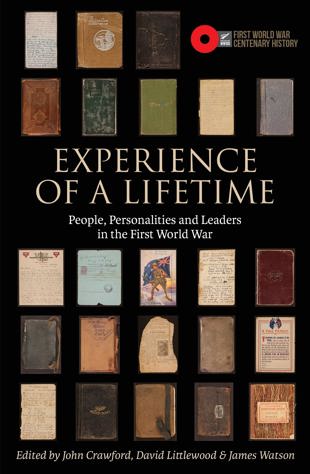Experience of a Lifetime
People, personalities and leaders in the First World War
Edited by John Crawford, David Littlewood and James Watson
A fresh look at the World War I experience
The First World War is widely conceived as a pointless conflict that destroyed a generation. Petty squabbles between emperors pushed naïve young men into a nightmare of mud and blood that killed millions and left scarred and embittered survivors.
However, the ongoing reinterpretation of the First World War reveals that matters were rather more nuanced and complex. Hardship and death were all too common, but there were positive experiences, too. Vast numbers of people, for example, travelled to new parts of the world and encountered new cultures, inspiring a sense of wonder and respect. Military tactics were improved, and great military commanders of the inter-war and Second World War periods came to prominence during the First World War. The conflict also had a formative influence on politicians, writers, artists, union leaders, businessmen and some ethnic minorities, who used their participation to press for equal rights and full citizenship. This book’s 16 chapters, written by a range of leading New Zealand and international historians, explains how.
To look inside, click here.
- CATEGORY: Ebooks, History, Military history
- ISBN: 9780994130013
- ESBN: 9780994132543
- PUBLISHER: Massey University Press
- IMPRINT: Massey University Press
- PUBLISHED: 15/04/2016
- PAGE EXTENT: 352
- FORMAT: Soft cover
About the editors

John Crawford is the New Zealand Defence Force Historian and a member of the Governance Group of the First World War Centennial History Programme.

David Littlewood is a Lecturer in History at Massey University’s Palmerston North campus, and his research focuses on the impacts of the First World War on New Zealand and British society.

James Watson is Associate Professor in History at Massey University. His research focuses largely on the relationship between New Zealand and the UK in the twentieth century.

